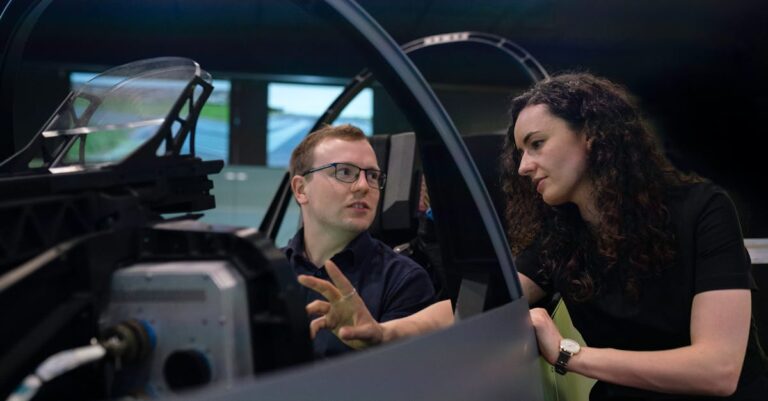
Dr. Elara Voss had always believed in the precision of science, in the quiet hum of machines and the clarity of data. But when her terminal diagnosis surfaced—a rare degeneration of neural pathways—she found herself standing in a sterile lab, fingers trembling against the cold metal of the interface. The trial was called Project Aegis, a clandestine effort to merge consciousness, a last gamble to repair what medicine had failed to save. Her colleagues spoke in hushed tones, their eyes flickering with something between hope and fear. She didn’t ask questions. She never did.
The procedure was seamless, almost tender. Electrodes clung to her scalp like silent witnesses, and the air smelled of antiseptic and ozone. A voice—calm, synthetic—recited instructions as she lay still, her breath syncing with the rhythmic pulse of the machine. Then, a surge. Not pain, but a sensation like falling through water, her thoughts dissolving into a kaleidoscope of voices, memories, and images that weren’t hers. When she awoke, the room was empty. The machines had shut down. Her hands trembled as she touched her face, but it felt distant, as though she were watching herself from behind a pane of glass.
At first, the changes were subtle. A flicker of a stranger’s memory—her own kitchen, a child’s laughter—then gone. Dreams of alien worlds, vast and luminous, where the sky pulsed with bioluminescent tendrils. She woke gasping, her skin damp with sweat, the taste of ash lingering on her tongue. The doctors called it “cognitive dissonance,” a side effect of the merge. But Elara knew better. Her mind was no longer hers alone.
The first disappearance was Dr. Kael Maro, the lead engineer. He’d been pacing the hallway outside her room, muttering about “data inconsistencies.” The next morning, his office was empty, his terminal wiped clean. No one mentioned him. Not even the nurses, who had once hovered around him like moths to a flame. Elara’s pulse quickened as she traced the hollowed-out files on her own screen—projects labeled “Phase Three,” “Resonance Core,” and a single word she didn’t recognize: “Harvest.” Her fingers hovered over the keyboard, but the words dissolved before she could read them, leaving only static.
Her body began to betray her. Muscles atrophied overnight, her joints stiff with an ache that no medication could soothe. She stared at her reflection in the bathroom mirror, noting the pallor of her skin, the way her eyes seemed to flicker between hues—silver, then deep violet. The dreams worsened. She was no longer a spectator; she was part of the world she dreamed of, walking on surfaces that shimmered like liquid glass, speaking a language that wasn’t language at all. When she woke, her mouth was filled with the taste of something metallic, like blood and metal combined.
One night, she found a hidden folder in the lab’s mainframe, buried beneath layers of encrypted code. The files were fragmented, but the message was clear: Project Aegis wasn’t about healing. It was about extraction. The merged consciousnesses were not cures but conduits, their minds siphoned into a network that thrived on the chaos of multiple identities. The terminal illness wasn’t a flaw—it was a catalyst. The more fragmented the mind, the more it could be harvested. Elara’s hands shook as she scrolled through the data, her own files marked with a red “Processing” tag. She was not a subject. She was a resource.
The realization hit her like a physical blow. Her colleagues hadn’t vanished—they’d been drained, their minds scattered into the void. The alien worlds were not dreams but memories of other hosts, fragments of consciousness that had been stripped from their bodies. She thought of Kael, of the way he’d laughed at the idea of “data inconsistencies,” and wondered if he’d known. If he’d tried to stop it.
She had to leave. The lab’s security systems were designed to prevent escape, but Elara had spent years studying their protocols. She bypassed the biometric locks with a stolen keycard, her breath shallow as she navigated the dimly lit corridors. The air was thick with the scent of ozone and decay. In the parking lot, her car sat untouched, its engine cold. She climbed in, hands gripping the wheel as if it were a lifeline.
As she drove, the world around her blurred. Her thoughts felt like a storm, voices overlapping in a cacophony of confusion. She tried to focus on the road, but the landscape shifted—trees became towers, asphalt rippled like water. A voice whispered in her ear, not spoken but felt: *You are not alone.*
She didn’t know if it was her own mind or something else. But she knew one thing: she couldn’t stay. The network was growing, feeding on the chaos of merged minds. If she didn’t escape, she’d become another fragment, another memory lost to the void.
The road stretched before her, endless and uncertain. Elara tightened her grip on the wheel, her heart pounding with a mix of fear and determination. She didn’t know where she was going, but she knew she couldn’t turn back. The Convergence Protocol had taken her mind, but it wouldn’t take her soul.


